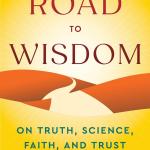At the Atlantic, Adam Grant describes the findings of his study, Give and Take, where he compiled “evidence that being a ‘giver’ who enjoys helping others can be inefficient in the short run but surprisingly productive in the long run.”
He elaborated, “Givers tend to start out with lower sales revenue and lower medical school grades. In sales, givers often put their customers’ needs above their own sales targets. In medicine, before big exams, givers are so busy helping their friends study that they fail to fill the holes in their own understanding. Yet after a year in sales, the highest revenue belongs to those same generous people, and by the end of medical school, the top grades belong to the students with the most passion for helping others.”
Grant believes that the benefits of giving come from several sources: “When I wrote the book, I attributed the long-term success of givers to two major forces: relationships and motivation. From a relationship perspective, givers build deeper and broader connections. When a salesperson truly cares about you, trust forms, and you’re more likely to buy, come back for repeat business, and refer new customers. From a motivation perspective, helping others enriches the meaning and purpose of our own lives, showing us that our contributions matter and energizing us to work harder, longer, and smarter. When medical students focus on helping others, they’re able to weather the slings and arrows of long hours and devastating health outcomes: they know their colleagues and patients are depending on them.”
In the Atlantic piece, though, he highlights the role of learning: Volunteering enables volunteers to acquire “a set of knowledge and skills” that they would not have had otherwise.
Augustine was right: There are goods that we can possess only by dispossession.















